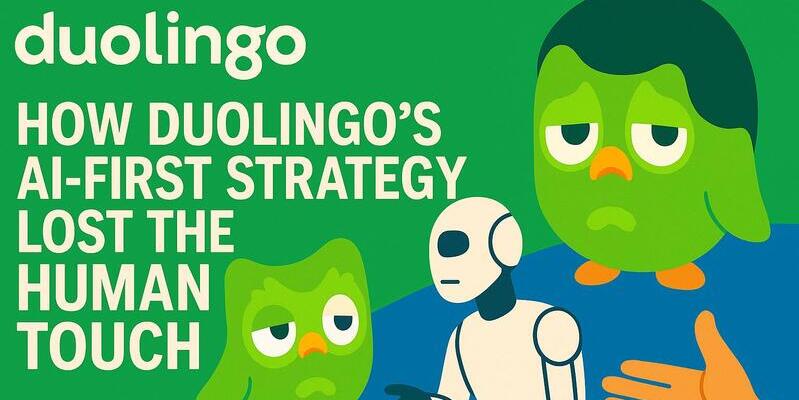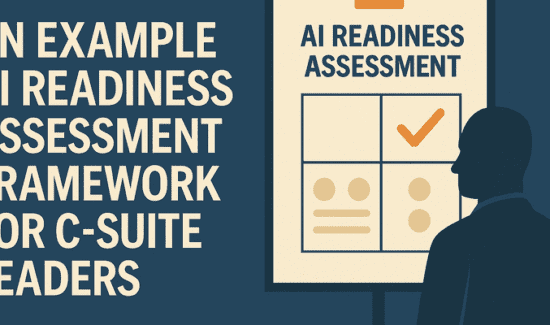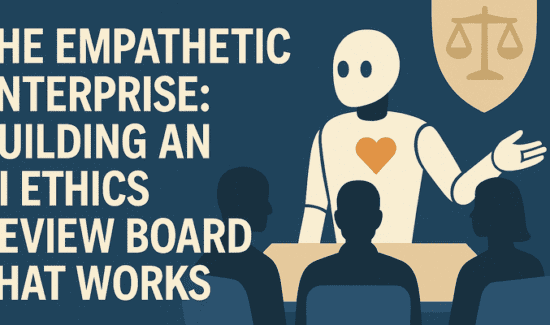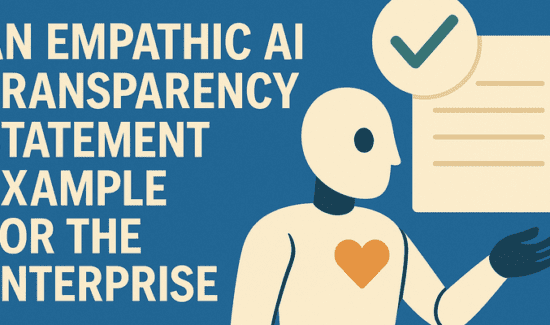How Duolingo’s AI-First Strategy Lost the Human Touch

Solutions Review Executive Editor Tim King offers commentary on Duolingo’s AI-first strategy and how it lost the human touch.
In late 2023 and early 2024, the popular language-learning app Duolingo undertook a sweeping workforce reduction. As part of a strategic shift toward “AI-first” content creation, the company reportedly laid off over 100 contract writers, translators, and curriculum experts. These were the humans who had helped build Duolingo’s quirky and pedagogically sound language content. But in their place came generative AI—largely powered by OpenAI tools, which promised greater speed and cost-efficiency.
On paper, it was a modern success story: AI tools generating grammar exercises, chat-based language scenarios, and even writing jokes. In reality, however, Duolingo quickly ran into trouble. Users began complaining that the content felt repetitive, robotic, or lacked the playful tone that made Duolingo iconic. Language teachers and linguists voiced concern about educational accuracy and cultural nuance. Meanwhile, former writers and contractors spoke out about abrupt contract terminations, lack of transparency, and the feeling that they had been replaced by machines that couldn’t replicate the soul of their work.
What unfolded was not just a technical miscalculation—it was a cultural and reputational stumble. Had Duolingo adopted an empathetic AI policy built on transparency, dignity, workforce support, cultural sensitivity, inclusiveness, and employee feedback, the outcome could have been radically different.
Sudden Layoffs with Little Context
Many writers and linguists found out their contracts would not be renewed with little notice or clarity. There was no structured plan to transition their roles, no acknowledgment of their creative legacy, and no effort to include them in the AI transition.
Violated Policy Principle: Human Dignity Safeguards + Transparency by Default
Duolingo could have:
-
Communicated the AI transition plan months in advance
-
Created a respectful offboarding process
-
Honored contributors in a public way for their foundational work
-
Provided clear reasoning tied to company strategy instead of vague contract silence
This transparency and respect would have protected brand reputation and human relationships.
No Upskilling or Role Transition Plan
Despite the rise of AI tools, Duolingo made no known attempt to retain or retrain its talented contributors. Many of these individuals were deeply knowledgeable in both pedagogy and localization—skills that AI tools still struggle to master.
Violated Policy Principle: Workforce Transition Support
With an empathetic policy, Duolingo might have:
-
Offered training in AI prompt engineering or AI content validation roles
-
Created hybrid roles that blended human oversight with AI speed
-
Launched fellowships or labs where former writers could guide AI development
This would have preserved talent and maintained consistency in tone, cultural nuance, and curriculum logic.
Declining Content Quality
As soon as AI-generated lessons rolled out more widely, users began noticing something off. The fun, unexpected, culturally textured flavor of Duolingo’s exercises began fading. Some exercises felt flat or culturally awkward. While AI sped up production, it couldn’t replicate the wit and intentionality that made Duolingo unique.
Violated Policy Principle: Psychological and Cultural Impact + Inclusive AI Development
An empathetic AI approach would have:
-
Piloted AI-generated content alongside human-created content to compare engagement
-
Included linguists, educators, and writers in the testing and refinement process
-
Measured cultural relevance and emotional resonance using feedback loops
Duolingo’s brand is built on joyful, human-centered learning. Neglecting culture cost them authenticity.
Ignoring User and Employee Feedback
As criticism mounted—both publicly and privately—Duolingo appeared to double down on its “AI-first” strategy. There was little sign that employee concerns were sought or heard, and no public-facing message that showed the company was actively listening to user critiques.
Violated Policy Principle: Employee Voice and Feedback
With proper policy support, Duolingo could have:
-
Used internal tools to collect employee perspectives before and after the AI rollout
-
Created opt-in test groups for loyal users to compare AI vs. human content
-
Iterated more carefully based on direct community feedback
This would have created a sense of partnership instead of displacement.
Overstating AI’s Readiness
While Duolingo didn’t issue bombastic press releases like some AI-forward companies, it did present the transition as seamless and exciting. Internally, AI-generated content was treated as a cost-cutting win—but externally, that confidence was not matched by user experience.
Violated Policy Principle: Transparency + Governance
Duolingo would have benefited from:
-
Publishing explainers on where AI was used and where human touch remained essential
-
Offering a “human-curated mode” in content to preserve trust
-
Tracking content accuracy, cultural integrity, and user satisfaction as core AI performance metrics
By being honest about trade-offs, Duolingo could have earned goodwill and credibility.
What Empathy Could Have Preserved
Duolingo has long been a darling in the edtech space because of its unique voice, irreverent tone, and accessible learning model. It succeeded not just because it taught languages—but because it made people feel good while doing it. AI can mimic structure and language, but it struggles with soul. Duolingo’s own employees—those they let go—were the soul.
An empathetic AI policy could have enabled a both/and model: fast, scalable content powered by AI and enriched, tested, and curated by the humans who made the app iconic. Instead of choosing efficiency at the expense of experience, they could have opted for empathy as the path to sustainable innovation.
Click here to download the report: AI Won’t Replace You, But Lack of Soft Skills Might: What Every Tech Leader Needs to Know and watch the companion webinar here.
Note: These insights were informed through web research and generative AI tools. Solutions Review editors use a multi-prompt approach and model overlay to optimize content for relevance and utility.



